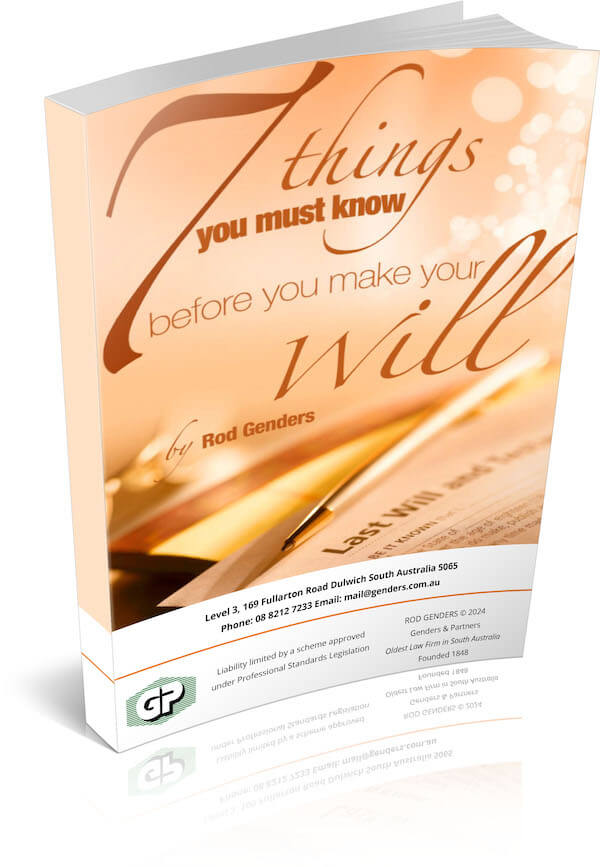
When most Australians think about estate planning, they picture a Will, and perhaps one or more delegations or directives such as powers of attorney.
But there’s one powerful piece of the financial puzzle that often gets overlooked: your ‘superannuation death benefits’.
As the superannuation balances of Australians continue to grow—thanks to compulsory employer contributions, voluntary salary sacrificing, and market growth—it’s never been more important to understand how your super fits into your broader estate planning strategy.
In this article, we’ll explore what superannuation death benefits are, how they’re distributed, who can receive them, and how to ensure your intentions are fulfilled after you pass away. If you’re serious about protecting your loved ones and securing your legacy, this is a must-read.
What Are Superannuation Death Benefits?
Your ‘superannuation death benefit’ is the amount paid out from your super fund when you pass away. It typically includes:
- Your ‘super account balance’, and
- Any ‘life insurance’ held within the fund.
This lump sum can be substantial, often one of the two largest financial assets a person owns at the time of death (the other being the family home).
But here’s the catch: superannuation ‘does not automatically form part of your estate’. It is held in trust by your super fund, which means it is governed by superannuation law (specifically the ‘Superannuation Industry (Supervision) Act 1993’, or SIS Act), not just your Will.
Who Can Receive Your Superannuation Death Benefit?
Under Australian law, your super fund can only pay your death benefit to:
- Your ‘dependants’ as defined under the SIS Act, which includes:
- Your spouse or de facto partner;
- Your children (of any age);
- Anyone financially dependent on you;
- Anyone in an interdependency relationship with you.
- Your ‘legal personal representative’ (i.e., the Executor or Administrator of your estate), if you’ve nominated this in your super fund instructions.
This means you cannot simply rely on your Will to distribute your super. Without a valid nomination, your fund’s trustee has the discretion to decide who receives your super—potentially leading to delays, disputes, and unintended outcomes.
[Pro tip / warning : If left to the discretion of the super fund trustee, the risk of extensive delay is much worse. In March 2025 ASIC delivered a scathing review into ‘insensitive’ super funds on death benefit claims. Australia’s corporate watchdog called on superannuation funds to overhaul the way they deal with death benefit claims, noting excessive delays, poor customer service and ineffective claims handling are leaving Australians worse off at some of the most vulnerable times of their lives. Most ordinary Australians will want to avoid this stress and delay for their families, by setting up a Death Benefit Nomination (DBN) on their super.]
Binding vs Non-Binding Nominations: Know the Difference
To control who gets your super when you pass away, you need to make a ‘death benefit nomination’ (DBN) with your super fund. There are two main types:
1. Binding Death Benefit Nomination
A binding nomination compels the trustee to pay your super to the nominated beneficiary (as long as they are eligible). It must be:
- Made to a SIS-defined dependant or your legal personal representative
- Signed and witnessed correctly
- Renewed every three years (unless it’s a non-lapsing nomination, if your fund allows it)
This gives you certainty and control.
2. Non-Binding Nomination
This is more like a suggestion to the trustee. They will consider your nomination but ultimately make the final decision based on their assessment of eligible beneficiaries.
[Bonus Tip: there are two sub-types of Superannuation Death Benefit Nominations – ‘Lapsing’ and ‘Non-Lapsing’. Most of the Australian super funds that permit Binding Death Benefit Nomination, only allow them to be Lapsing nominations, meaning that you must renew them every 3 years. This can be problematic, as such a high number of us can lose our capacity later in life (think: Stroke, senility, dementia, Alzheimer’s, etc) so if we lose our capacity we won’t be able to renew our DBN, which will then lapse.]
Why Superannuation Death Benefits Are Crucial for Estate Planning
Superannuation can represent a significant portion of your wealth, and mishandling it can have serious consequences. Here’s why it deserves a key role in your estate planning strategy:
Tax Implications
The tax treatment of death benefits depends on the relationship between the deceased and the beneficiary:
- Tax-free if paid to a tax dependant (e.g. spouse, minor child)
- Taxable (up to 32%) if paid to a non-tax dependant (e.g. adult children)
This can make a massive difference in the amount your loved ones receive. Proper planning can minimise or eliminate unnecessary tax.
Avoiding Family Disputes
Failing to make a valid binding nomination can lead to delays, disagreements, or even court battles over your super. This is especially common in blended families or where there are estranged relatives.
Maintaining Financial Security for Loved Ones
With a well-structured nomination, you can ensure your super goes directly to someone who needs it, such as a dependent spouse or children, providing them with timely financial support.
Integrating Super into Your Estate Plan: Best Practices
Want to make sure your superannuation death benefits work for your legacy, not against it? Here are some best-practice tips:
✅ Review Your Nominations Regularly
Marriage, divorce, births, deaths, or changes in relationships can all affect who should receive your super. Make sure your nominations are up to date and legally binding.
✅ Consider nominating your Legal Personal Representative (LPR)
By nominating your LPR 100% in your super DBN, you point your super to your Will so that your Will takes care of it all when you die. This permits ‘cascading’ or alternate/substitute gifts of your super, as well as protective trusts to ensure that your superannuation death benefit goes through your estate and is managed for the benefit of your estate beneficiaries. This offers:
- Greater control;
- Greater flexibility;
- Tax minimisation;
- Asset protection.
✅ Get Legal and Financial Advice
Super and estate laws are complex—and mistakes can be costly. Work with an estate planning lawyer and a financial adviser who understands the nuances of superannuation death benefits.
✅ Talk to Your Loved Ones
Clarity helps reduce confusion and conflict. Let your beneficiaries know what you’ve planned and why.
Common Myths About Super Death Benefits
Let’s address a few myths we often hear:
“It’s in my Will, so it’s taken care of.”
Not necessarily! Unless your super is directed to your estate via a valid DBN, your Will doesn’t apply. This means that you cannot fix this issue through your Will alone – you MUST go to your super fund and create a DBN as well.
“Anyone can receive my super.”
Wrong. ONLY a SIS-dependent or your estate can receive your super death benefit. This means that friends, companies and charities can NEVER receive your super UNLESS it is via your Will. Similarly, siblings, parents and relatives other than your spouse and children will probably not be bale to receive your super unless it is via your Will.
“I don’t need to worry about this yet.”
Superannuation death benefits aren’t just for retirees. If you’re working and have life insurance through your fund, your death benefit could already be hundreds of thousands of dollars. In fact many younger people are ‘worth more dead than alive’ due to the operation of term life insurance through their super.
Final Thoughts: Don’t Leave it to Chance
Superannuation death benefits are too important to overlook. Whether you’re building your wealth, protecting your family, or planning your legacy, integrating super into your estate plan is essential.
With the right strategies in place, you can make sure your loved ones are supported, your wishes are honoured, and your wealth is passed on efficiently and tax-effectively.
Need Help Planning Your Superannuation and Estate?
Genders and Partners are the oldest law firm in South Australia – established 1848 – and we specialise in modern, integrated and comprehensive estate planning that includes smart superannuation strategies. Let us help you take control of your financial legacy and provide peace of mind for those you care about most.
So … put your affairs in order, and create a modern integrated estate plan before it’s too late.
When it comes to Wills, asset protection & estate planning in Australia, you can trust the oldest law firm in South Australia, Genders & Partners to guide you through the tough decisions you must make for your family’s future care and welfare.
If you have any questions, or would like further information, please email us. Would you like a quick phone call to discuss? Feel free email us or use this link and book a timeslot for a free 15-minute phone consultation on my schedule.
We can help you to protect yourself and your family. We look forward to being of service.
Want to find out more?
More Estate Planning Resources
All these and many more estate planning and asset protection options are available for discussion with the oldest law firm in South Australia.
Genders and Partners will work with your Financial Advisor and/or Accountant to structure your estate planning as appropriate to your circumstances, including advice as to the use of testamentary trusts.
Disclaimer
The information contained in this document is intended as general information only and has been prepared without taking into account the needs, objectives or financial information of any particular person.
Prior to making any decision, you should assess whether the information is appropriate to your particular needs, objectives and financial circumstances.
While Genders and Partners has taken reasonable care in the preparation of this information, subsequent changes in circumstances (including legislative change) may occur at any time and may impact on the accuracy of the accuracy of this information.
🌐 Visit www.genders.com.au to learn more
eBook “7 Things You Must Know Before You Make Your Will”
In this eBook you will Learn:

- Why home-made Wills can be a LOT more expensive than you might think.
- The secret weapons used by the rich & powerful to protect their assets, and transfer their wealth two or three generations ahead.
- How Estate and Trustee Companies make BIG money from “free” Wills.
- The Most Common Estate Planning Mistakes, how they can cost your family a fortune, and How to Avoid Them.
- The Elements of a Sound Estate Plan – why a Will alone is not enough.
- How to Make Sure Your Assets Stay in Your Family and are not lost to creditors, lawsuits or ex-spouses.
- How to guard against challenges to your Estate after you’re gone.


